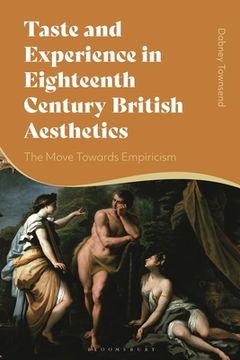Share
Taste and Experience in Eighteenth-Century British Aesthetics: The Move toward Empiricism
Dabney Townsend
(Author)
·
Bloomsbury Publishing PLC
· Hardcover
Taste and Experience in Eighteenth-Century British Aesthetics: The Move toward Empiricism - Townsend, Dabney
Choose the list to add your product or create one New List
✓ Product added successfully to the Wishlist.
Go to My Wishlists
Origin: U.S.A.
(Import costs included in the price)
It will be shipped from our warehouse between
Monday, August 05 and
Thursday, August 15.
You will receive it anywhere in United Kingdom between 1 and 3 business days after shipment.
Synopsis "Taste and Experience in Eighteenth-Century British Aesthetics: The Move toward Empiricism"
Taste and Experience in Eighteenth Century Aestheticsacknowledges theories of taste, beauty, the fine arts, genius, expression, the sublime and the picturesque in their own right, distinct from later theories of an exclusively aesthetic kind of experience. By drawing on a wealth of thinkers, including several marginalised philosophers, Dabney Townsend presents a novel reading of the century to challenge our understanding of art and move towards a unique way of thinking about aesthetics. Speaking of a proto-aesthetic, Townsend surveys theories of taste and beauty arising from the empiricist shift in philosophy. A proto-aesthetic was shaped by the philosophers who followed Locke and accepted that theories of taste and beauty must be products of experience alone. Francis Hutcheson, David Hume, Alexander Gerard and Thomas Reid were among the most important advocates, joined by others who re-thought traditional topics. Featuring chapters tracing its philosophical principles, issues raised by the subjectivity of the empiricist approach and the more academic proto-aesthetic formed toward the end of the century, Townsend argues that Lockean empiricism laid the foundations for what we now call aesthetics.
- 0% (0)
- 0% (0)
- 0% (0)
- 0% (0)
- 0% (0)
All books in our catalog are Original.
The book is written in English.
The binding of this edition is Hardcover.
✓ Producto agregado correctamente al carro, Ir a Pagar.

